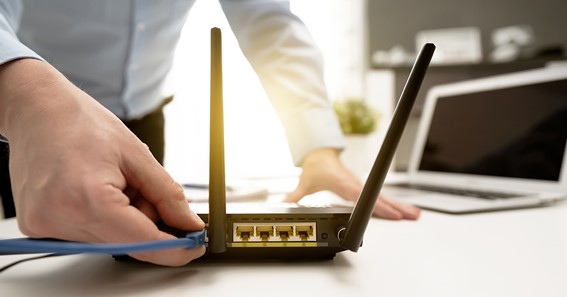Shopping malls, restaurants, airports, libraries, public transportation, coffee shops, and hotel rooms all have free Wi-Fi.
Millions of people use these networks on a daily basis.
According to a recent ITRC survey, three out of four people use free public Wi-Fi.
However, most people are unaware, that free public Wi-Fi is not safe.
Even if logging in requires a password, that doesn’t mean your online actions are secure. For example, you may enjoy public Wi-Fi, but hackers do as well. As a result, if you use public Wi-Fi without appropriate security, you’re putting your online identity and money at risk.
What Are The Risks Of Public WiFi?
- Theft of personal details.
- Cyber attacks on businesses.
- Unencrypted connections.
- Malware distribution.
- Packet shifting.
- Session hijacking.
- Man in the middle cyberthreats.
click here – How to choose my Vanities?
How To Stay Safe Using Public WiFi?
It does not matter if you are using public WiFi to open your office portal or download a game from Pirate Bay; you should follow some security measures.
Let’s take a look at them here:
#1: Use A VPN
The most secure way to surf on public networks is to use a VPN. It’s one of the most useful technologies for keeping people’s information safe while using public networks.
VPNs encrypt data flow and provide a secure connection between the client and the server.
Hackers won’t be able to see any of the data traveling through the tunnel, and they won’t be able to access your information or online activity.
Another advantage of VPNs is that they conceal your IP address from a different location. So even if you’re physically in Australia, your VPN will show that you’re in another country.
2: Use HTTPS
If you don’t have access to a VPN, making sure you only visit encrypted websites will help secure your data from the hazards listed above.
Look for the HTTPS protocol at the start of a website’s address.
This indicates that the connection between the browser and the webserver is encrypted, ensuring that any data submitted to the website is secure from eavesdropping or alteration.
In most browsers, a padlock icon appears at the start of the address to signify that the site is encrypted.
3: Enable The Firewall
By enabling the firewall, you can prevent hackers from gaining illegal access to your system from the outside. Although a firewall will not give total security, it is a setting that should always be enabled.
A firewall protects your device from data-based malware attacks by acting as a barrier.
It actively watches network data packets and determines whether they are safe or not. The firewall will prevent any dangerous data packets it detects.
The firewall secures your computer or network by restricting certain data types and protecting your data from assaults.
We usually disable the Windows firewall to avoid the bothersome pop-ups and notifications and forget about it.
4:Use Antivirus
Antivirus software can safeguard you while using public Wi-Fi by detecting malware that may infiltrate your system while connected to the network.
Always make sure that the antivirus program on your device is updated to the most recent version.
Thus, you will get an alert on your computer screen if there’s any suspicious activity on your network, chances of a malicious attack or malware entering your system via a network.
Once you get an immediate notification when hackers try to breach your firewall, you can take action accordingly.
5: Verify The Network
Keep in mind that hackers are astute, so it’s best to surf and play smart. But, first, examine the network name carefully and inquire if the connectivity is real with a company employee.
You can also inquire about the provider’s IP address. As previously said, hackers frequently create bogus networks, so double-check the name to avoid becoming a victim.
Another thing to consider is whether you actually need to have sharing preferences set on when using the public internet. Of course not!
So, as soon as you’ve verified the network, disable file sharing. Depending on your operating system, you can usually turn off file sharing through the system options or control panel.
click here – Features to Check While Buying Halo Hair Extensions
Better Safe Than Sorry!
You may ignore these safety tips because you think you don’t browse the unsafe sites on the web.
But, taking precautions is always a good idea, and it will ensure you don’t fall into the traps of cyber attackers,
Once you follow these tips, you will be the epitome of safe internet practices.
So, if you want more information on them, let us know in the comment box below. We will get back to you with an answer in no time.






